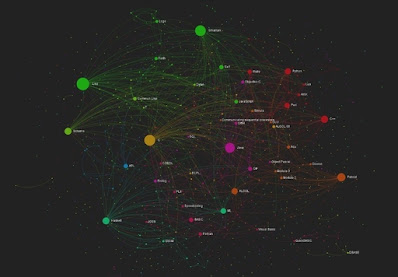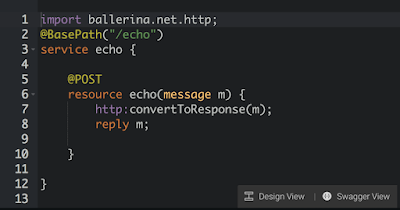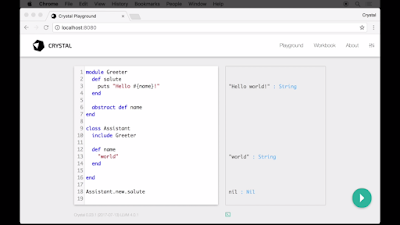5 Latest Programming Languages
As a tech savvy or tech lover, it is important to always keep yourself ahead of the tech trend. The modern era of technology is progressing so fast that eventually, web and app developers will have to learn high-level computer programming languages in their careers to further develop themselves. [Sorry! It's my personal opinion !]
There are many mainstream languages like Java, JavaScript, Python, Ruby, and PHP etc. But some languages are starting to fade in popularity in favor of more modern languages that can handle the requirements of the future of tech. So, today I'm gonna talk about the latest and underrated programming languages. These are absolutely not mainstream languages, but they are quite good on their own platform !
1. Ballerina
Ballerina is, for now, the newborn programming language in the industry. This is also one of the first languages to use constructs geared towards cloud-native development. It was first appeared in 2017. It is an opensource programming language like Perl. If you want to know about Perl, here is my post about Perl.
It has scripting that is easy to learn, write, and modify. This makes it suitable for programmers who have the intention of connecting various web services all into one program. It is a cross platform language and licensed under Apache Language 2.0
2. Reason
You may get shocked by knowing this fact about Reason—it’s not a programming language. In fact, it’s more of a syntax extension and toolchain influenced and powered by OCaml. On the other hand, OCaml is a general-purpose language that emphasizes expressiveness and safety.
Reason is created by Jordan Walke at Facebook in 2016. It's syntax favors heavily with JavaScript and compiles to OCaml. Walke describes it as JavaScript’s “simpler, faster cousin” !!! It is more user-friendly to develop apps for both iOS and Android. Reason works well with React-based web apps as well through a version called "ReasonReact".
3. Crystal
Crystal is an object-oriented general purpose programming language. It is simply called the younger sister of Ruby. It actually launched in June 2014. it is developed by more than 300 contributors with strong influences from Ruby in its syntax. Active developments of the language are still in progress today.
Crystal’s syntax feels more natural to read and easy to write compared to its predecessor. It is currently free and open-source software available for others to edit, copy and modify to their preference. As Ruby starts to fade, Crystal could take over as the heir to the throne in the programming world with its simpler, more readable code.
4. Hack
Hack is a programming language for the Virtual Machine which is created by Facebook as a dialect for PHP. It allows programmers to use both dynamic and static typing in its code. This is also known as "Gradual Typing". Hack works in conjunction with PHP and focuses on web development and can be embedded into HTML for ease of use.
Hack is mainly used for virtualization with the power of HTML implementation. In web development field, virtualization works as a charm to build an aesthetic website. In this type of criteria, Hack programming language comes handy.
5. Red
Red’s focus is on being the “world’s first full-stack language”. Yes ! You've heard it right. Now we know what it takes to be a full-stack developer, but a language that gets the work done all at once? Is it a fairy tale ? Now that’s some strong promise thrown out to developers, but the developers of Red are working to make that fairy tale into the reality.
This language was created to overcome the limitations that Rebol has run into in its lifetime. It has a very "human-friendly” syntax. It is first launched in 2011, Rebol developer Nenad Rakocevic built Red to be completely independent of any other toolchain. The language performs its own code generation instead. In fact, he didn’t market the language as a “language”, but as a “language construction set”.
Rakocevic created the language to support meta-programming and domain-specific languages. This makes Red virtually universal with any language native to any operating system out there. Arguably the best feature of this language is the fact that there is no software or setup needed at all! Which works as a huge plus point. It uses everything that is native to your OS. It’s used for both high and low-level programming. By providing simplicity, flexibility, and portability, it saves on memory, speed, and performance. If there is one language to keep an eye out for in the future, this would definitely be the one.
That's all, guys. This is my 5 favourite programming languages without the bosses of the top line. Let me know yours favorites by comment. Next time, I'll be come up with another interesting topic. Till then, Stay Safe. PEACE !!












I guess Hack is not new enough , it's just not that popular.
ReplyDelete